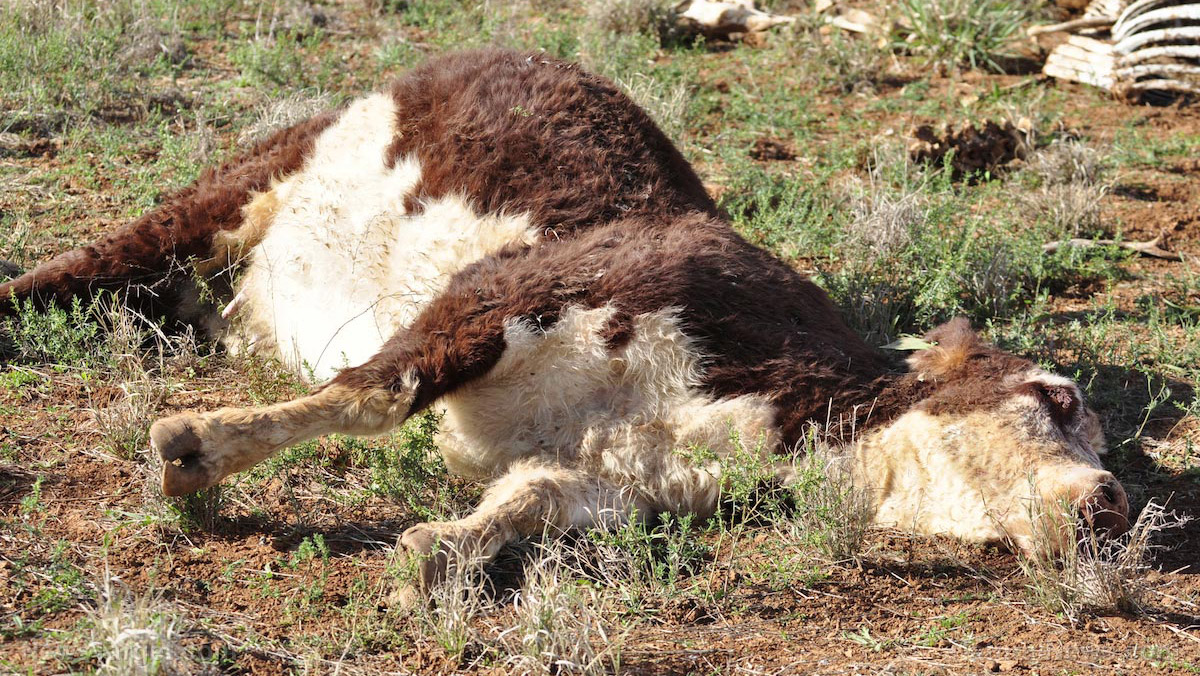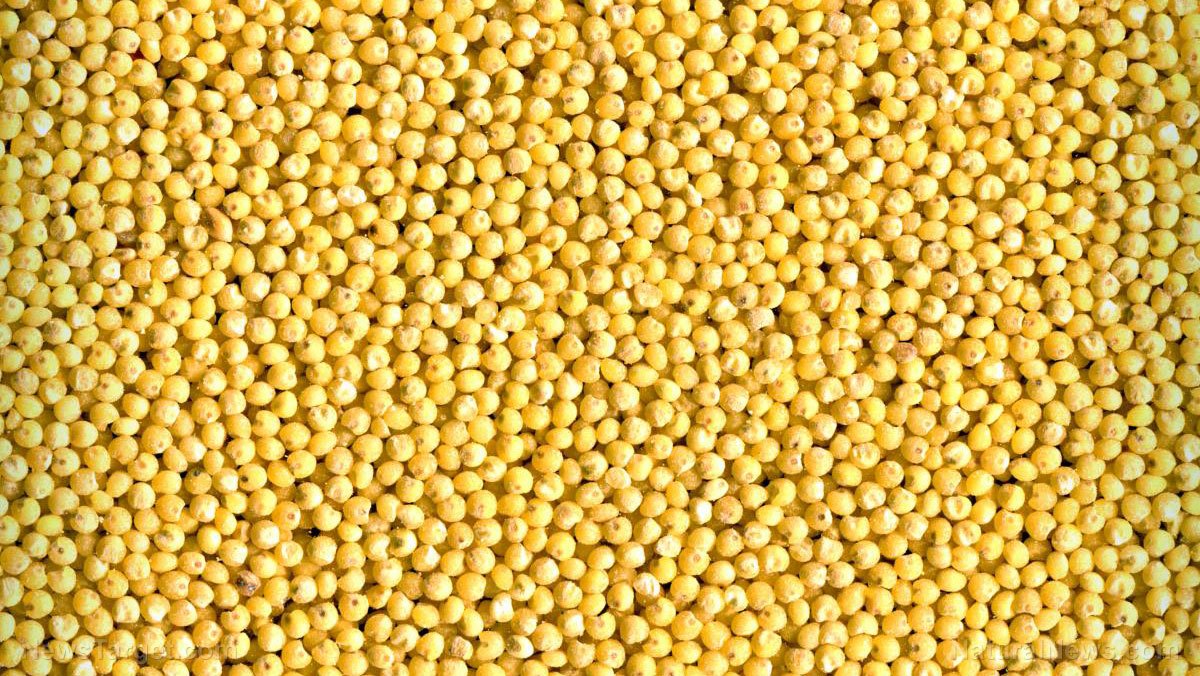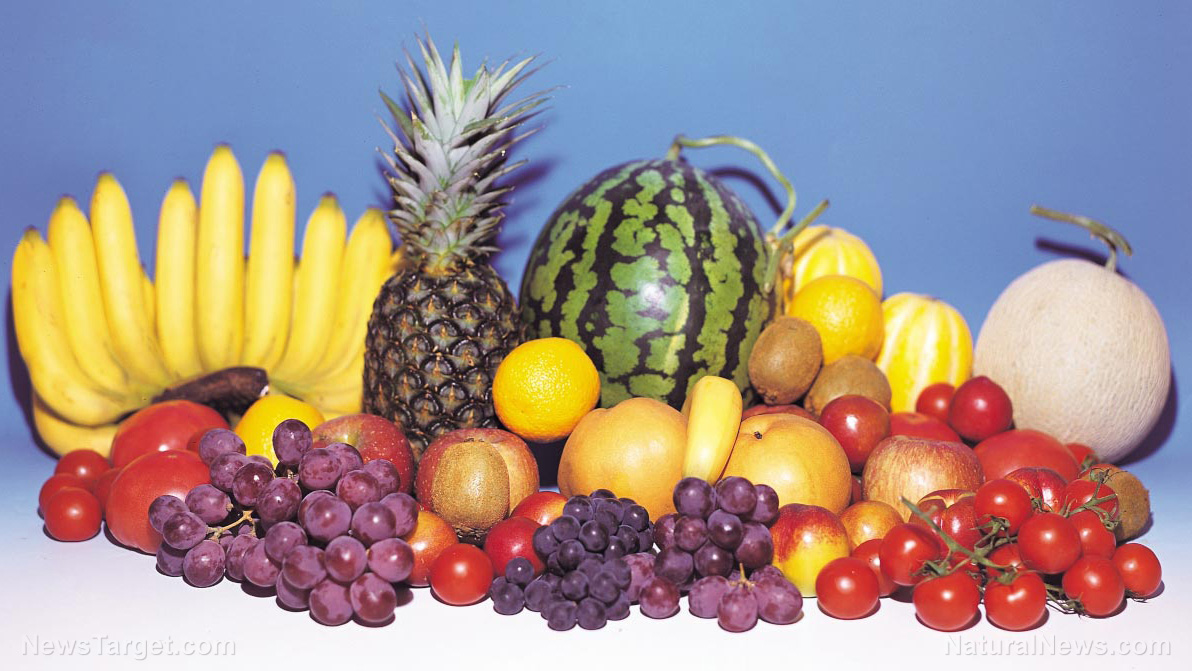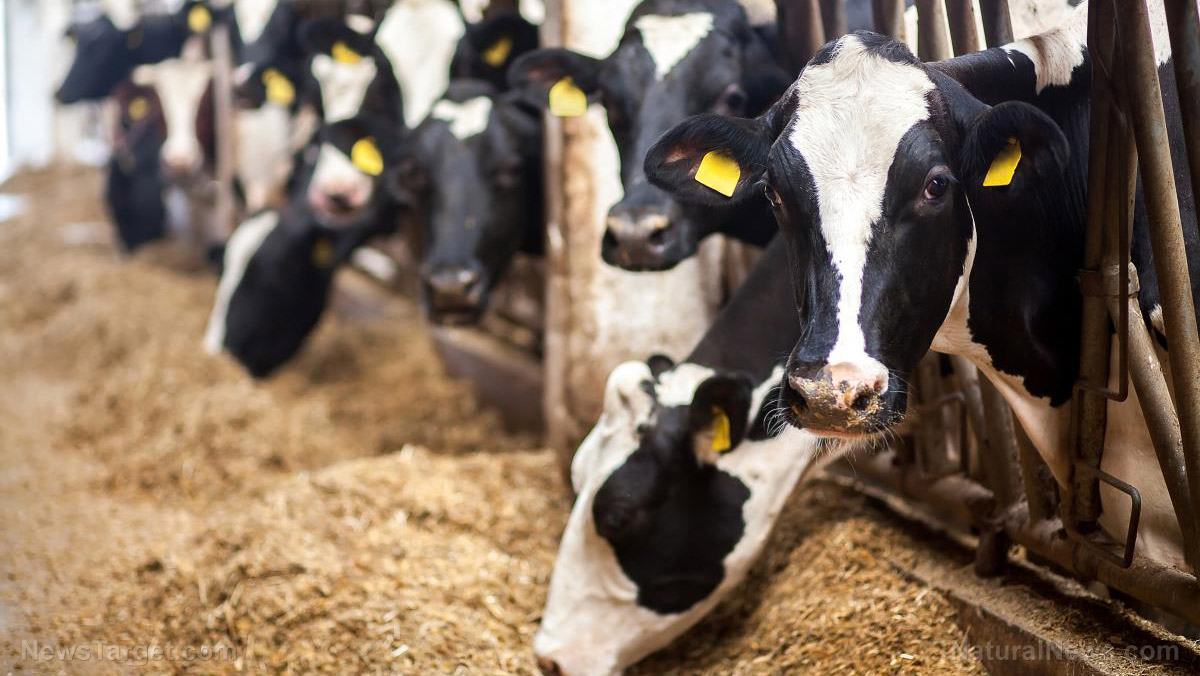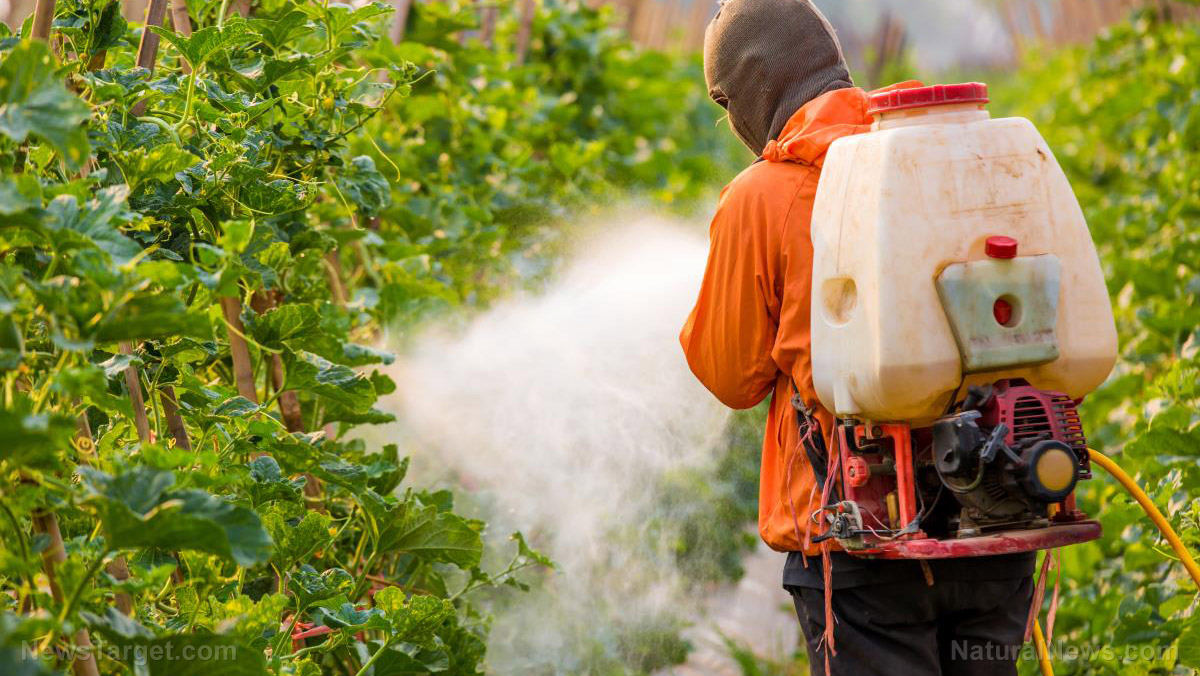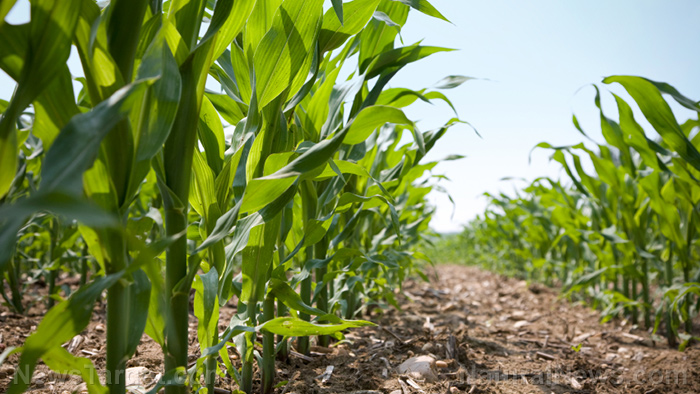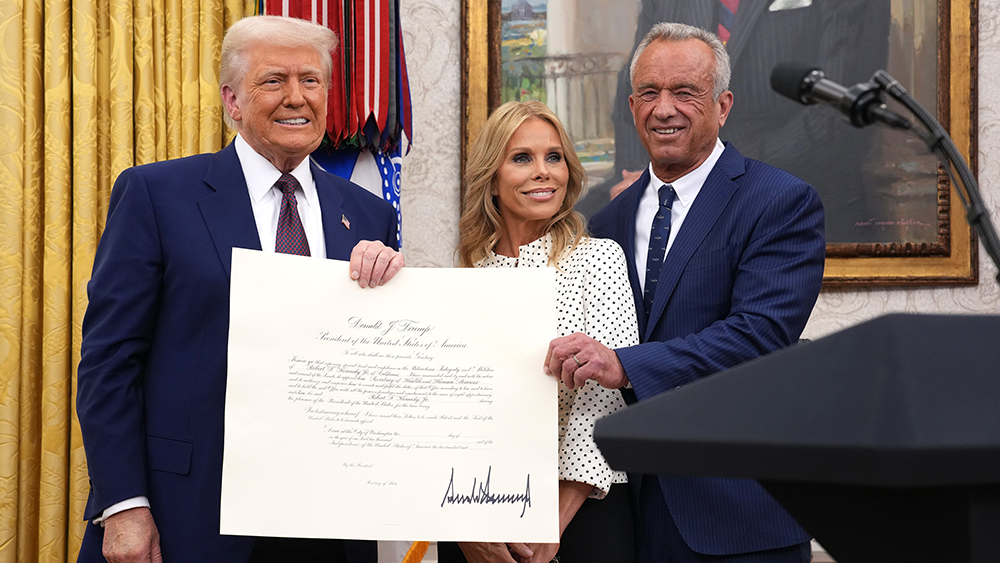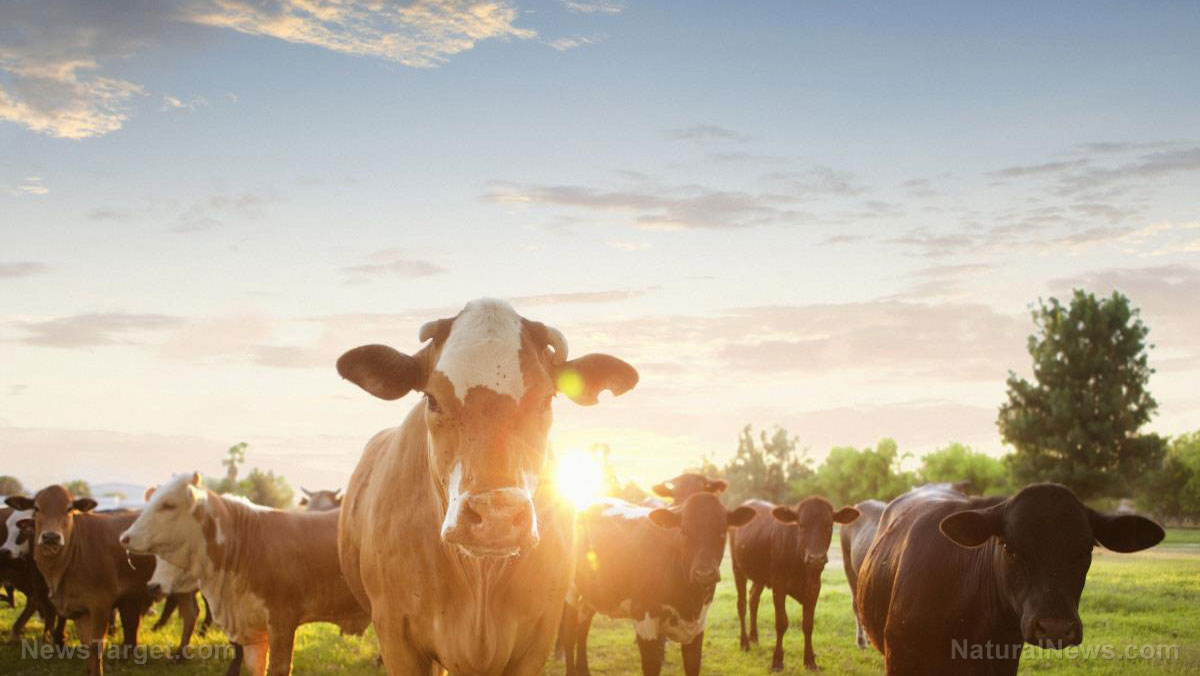Health Ranger Report: Adapt 2030’s David DuByne elaborates on the escalating global supply chain crisis
06/25/2025 / By Kevin Hughes

(Note: This article is based on a “Health Ranger Report” interview posted Dec. 22, 2023 on Brighteon.com.)
- Houthi rebel attacks on cargo ships have forced major shipping companies to halt Red Sea transit, effectively closing the Suez Canal. Delays in food, fertilizer and machinery shipments threaten global supply chains, with reroutes (e.g., Cape of Good Hope) worsening emissions and costs.
- Modern agriculture’s reliance on just-in-time deliveries makes it vulnerable to supply chain breakdowns. Critical delays (20–40 weeks) for tractor parts and fertilizers could cripple farming, leading to shortages and price spikes.
- Malaysia’s ban on Israel-bound cargo may inspire similar blockades (e.g., Malacca Strait), fracturing global trade. U.S. naval overextension and China’s rapid military growth raise tensions, particularly around Taiwan and strategic chokepoints.
- The Grand Ethiopian Renaissance Dam’s accelerated completion hints at elite efforts to control future food production hubs (e.g., a greening Sahel). Centralized power over agriculture and supply chains may be a tool for population control.
- A historic solar minimum (deepest in 400 years) could disrupt climate and agriculture, ignored by mainstream science. Listeners are urged to prepare for systemic shifts, challenge narratives, and explore self-reliance strategies.
The Health Ranger Mike Adams and Adapt 2030’s David DuByne delve into the escalating global supply chain turmoil, offering a sobering glimpse into the challenges that lie ahead.
The discussion kicked off with the escalating crisis in the Red Sea, where Houthi rebels have attacked cargo ships. This situation has forced the sixth-largest shipping container company to halt all transport through the critical waterway.
The Houthis’ actions stemming from Israel’s ongoing conflict with Palestinians in Gaza, has far-reaching implications. As DuByne explained, the Suez Canal – a vital artery for global trade – is now effectively closed. As a result, the flow of food, fertilizers and other essential goods are now disrupted. (Related: Houthi rebels resume Red Sea attacks, blaming Israel‘s Gaza blockade.)
The creator of the Adapt 2030 climate preparedness channels emphasized the strategic nature of these attacks, suggesting they may have been allowed to escalate to justify rerouting ships around the Cape of Good Hope. “Those attacks on the merchant vessels were allowed to continue unabated, untested, unchecked to get us to this point,” DuByne told Adams.
This diversion, while seemingly a logistical adjustment, carries significant environmental and economic consequences. The increased use of “dirty” bunker fuel to navigate the longer route around Africa undermines global efforts to reduce carbon emissions, highlighting the hypocrisy of world leaders who advocate for green policies while simultaneously endorsing actions that exacerbate environmental degradation.
The disruption of shipping routes is just the tip of the iceberg. DuByne warned that the delays in transporting agricultural inputs, such as fertilizers and machinery parts, will have a cascading effect on global food production.
Modern farming relies heavily on technology and just-in-time delivery systems, making it highly vulnerable to supply chain disruptions. The impact will be felt not only in the fields but also in the processing and distribution of food, leading to potential shortages and skyrocketing prices.
Adams underscored the vulnerability of high-tech agricultural machinery, which is heavily dependent on imported components. A delay of 20 to 40 weeks for essential parts could render tractors and other equipment inoperable, further exacerbating the crisis. This reliance on complex supply chains, secured by the U.S. Navy, is proving to be a weak link – as demonstrated by the Houthi rebels’ ability to disrupt global trade with relatively low-tech weaponry.
The fragmentation of global trade and the geopolitical chessboard
Adding to the complexity, Malaysia’s announcement that it will deny passage to any ship with cargo destined for Israel further complicates global trade dynamics. This move, if emulated by other nations like Indonesia, could effectively blockade the Malacca Strait, a crucial chokepoint for international shipping. The implications are profound, as it would force a realignment of global trade routes and potentially lead to the fragmentation of the current global economic system.
Adams and DuByne discussed the potential for increased regionalization of economies, as nations seek to secure their own supply chains and reduce dependence on vulnerable international routes. This shift could lead to a rise in protectionist policies and a decline in the efficiency and affordability of global trade.
The conversation shifted to the geopolitical ramifications of these developments. The U.S. Navy’s struggle to maintain control over key shipping lanes raises questions about its ability to project power globally.
The concentration of naval forces in the Red Sea and the Persian Gulf, while attempting to deter Iranian aggression, leaves other regions vulnerable. This strategic dilemma is compounded by China’s rapid expansion of its naval capabilities, which far outpaces that of the United States.
DuByne highlighted the potential for conflict over Taiwan, as the U.S. seeks to reinforce its presence in the Pacific. The refurbishment of air bases in Tinian and Guam, part of a broader strategy to create a defensive perimeter around Asia, underscores the escalating tensions in the region.
The Great Reset: Centralized control and the future of food production
The discussion took a turn toward the more speculative, as DuByne introduced the concept of the “Great Reset” and its implications for global food production. The author of the book “Climate Revolution” suggested that the construction of the Grand Ethiopian Renaissance Dam, the largest hydroelectric project in Africa, could be a harbinger of a shift in agricultural production.
The dam’s rapid filling ahead of schedule suggests an understanding of changing hydrological patterns, potentially indicating a greening of the Sahel region.
This shift, coupled with the construction of new dams and the development of reliable power sources, could position Africa as a new hub for food production and manufacturing. DuByne said the global elite may be positioning themselves to control these emerging food production centers, consolidating power and resources in the process.
Adams and DuByne also explored the influence of solar activity on climate and agriculture. They noted that the scientific establishment’s dismissal of the sun’s impact on climate is misguided and potentially deliberate.
The upcoming solar minimum, expected to be the deepest in 400 years, could have profound effects on global agriculture, further justifying the need for a reevaluation of current agricultural practices and the exploration of new growing regions.
As the conversation drew to a close, both Adams and DuByne emphasized the importance of awareness and preparedness. They urged listeners to stay informed, question mainstream narratives, and consider the possibility of significant societal and environmental changes. While the challenges are daunting, they also see an opportunity for positive transformation, provided that individuals and communities take proactive steps to adapt and innovate.
Follow Collapse.news for more news about the global crisis happening.
Watch the full interview between David DuByne and the Health Ranger Mike Adams below.
This video is from the Health Ranger Report channel on Brighteon.com.
More related stories:
Global crop failures and trade wars threaten mass famine by 2025, warns researcher David DuByne.
Europe launches food crisis WAR GAMES simulating an expected global food crisis.
Sources include:
Submit a correction >>
Tagged Under:
Africa, big government, Bubble, chaos, China, Collapse, conspiracy, David Dubyne, Fertilizers, food collapse, food supply, Gaza, globalists, great reset, Health Ranger Report, Houthi, Israel, Mike Adams, national security, Red Sea, risk, solar minimum, suez canal, supply chain, Taiwan, terrorism, US
This article may contain statements that reflect the opinion of the author
RECENT NEWS & ARTICLES
OrganicFarming.News is a fact-based public education website published by Organic Farming News Features, LLC.
All content copyright © 2018 by Organic Farming News Features, LLC.
Contact Us with Tips or Corrections
All trademarks, registered trademarks and servicemarks mentioned on this site are the property of their respective owners.


